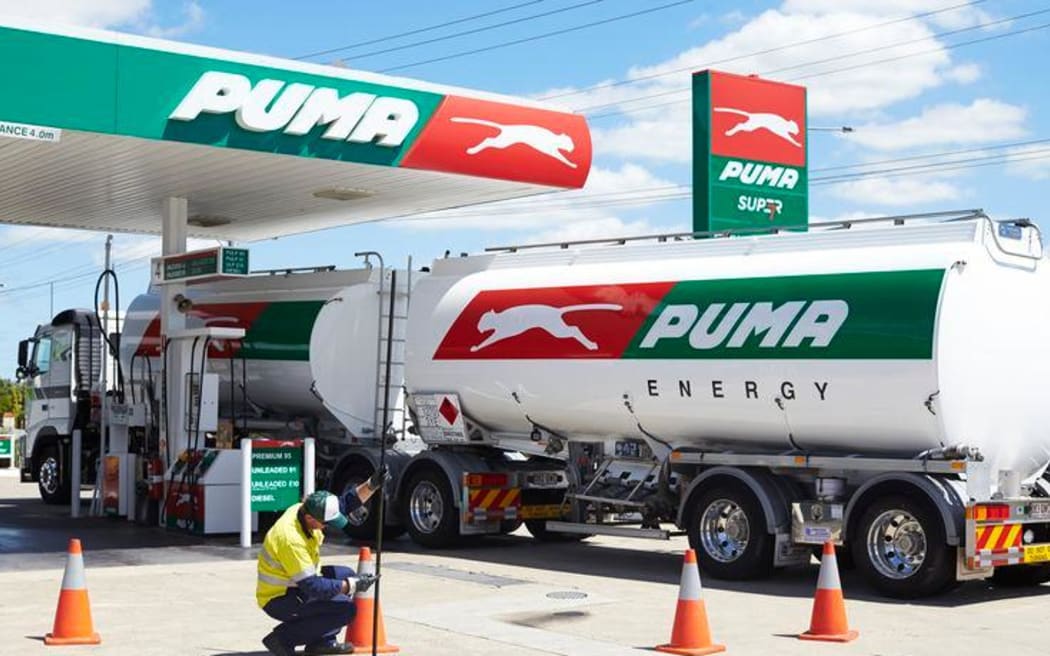People line up at Puma energy service stations to get fuel. February 2023.
Photo: Facebook / Marape – Rosso Government 2022-2027
The Papua New Guinea government finally instituted measures to try and solve an ongoing crisis over the availability of fuel last week.
Puma Energy, which has an almost monopoly control of the market, has been forced a number of times over the past year to announce that they are limiting supplies because they lack the foreign exchange needed to bring the fuel into the country.
Meanwhile, it has now been publicly revealed that the PNG Central Bank (BPNG) had last year asked police to investigate Puma for possible money laundering.
To date, there has been no indication from police that charges might be brought to bear.
But PNG Institute of National Affairs executive director Paul Barker said the primary cause of the issue is the lack of foreign exchange and this has a long history.
“We’ve had restrictions on foreign exchange for a number of years since about 2016. And it’s partly related to large government expenditure and budget deficits over a long period of time. So importing a lot of goods and services.
“And foreign exchange is not being stored in the PNG banking system, it’s not being remitted onshore,” Barker said.
He said fuel still takes the bulk of the foreign exchange which is available.
“So it has for a long, long time been one of the biggest monthly recipients of foreign exchange.
Barker said other that are other that take up the foreign exchange include mobile phone, international phone, internet costs and imported goods.
The bottom of the priority list is companies wanting to pay dividends overseas, which many of them haven’t been able to do for many, many years, he said.
It was revealed to the public just in the past week that Puma Energy, an entity owned by the Singapore based Trafigura, was suspected of money laundering.
This apparently relates back to Puma’s ability to also export refined fuel from its NapaNapa Refinery, and whether or not the funds raised are being properly remitted to PNG as foreign exchange.

Puma Energy, which has an almost monopoly control of the market, has been forced a number of times over the past year to announce that they are limiting supplies.
Photo: Facebook / Fight 4 PNG
BPNG had asked the police to investigate its suspicions but to date there has been no reaction reported by police.
“The question is in terms of the legality or illegality,” Barker said, adding that “they may have been doing something that was breaching the Central Banking Act, and whether those transfers of money that belonged to Puma actually were criminally negligent, as it were, or whether it was a civil offence is a bit debatable”.
He said if Puma were transfer pricing, not declaring amounts of money or transactions that would be subject to taxation that would be in breach of the taxation legislation, which would be potentially a criminal act.
“But if it’s actually in breach of the Central Banking Act and transferring when approvals haven’t been made, there’s some debate as to whether really, that’s a criminal or civil case. It’s noted that the police haven’t done any follow up on that.”
Meanwhile, the impact of the frequent fuel shortages continue to bit.
The economy and the people of Papua New Guinea are being forced to bear it with aviation sometimes largely at a standstill, queues at gas stations with other gas stations closed, businesses struggling to move goods inland or to ports for export and communities reliant on diesel fuel for electricity left out of luck.
